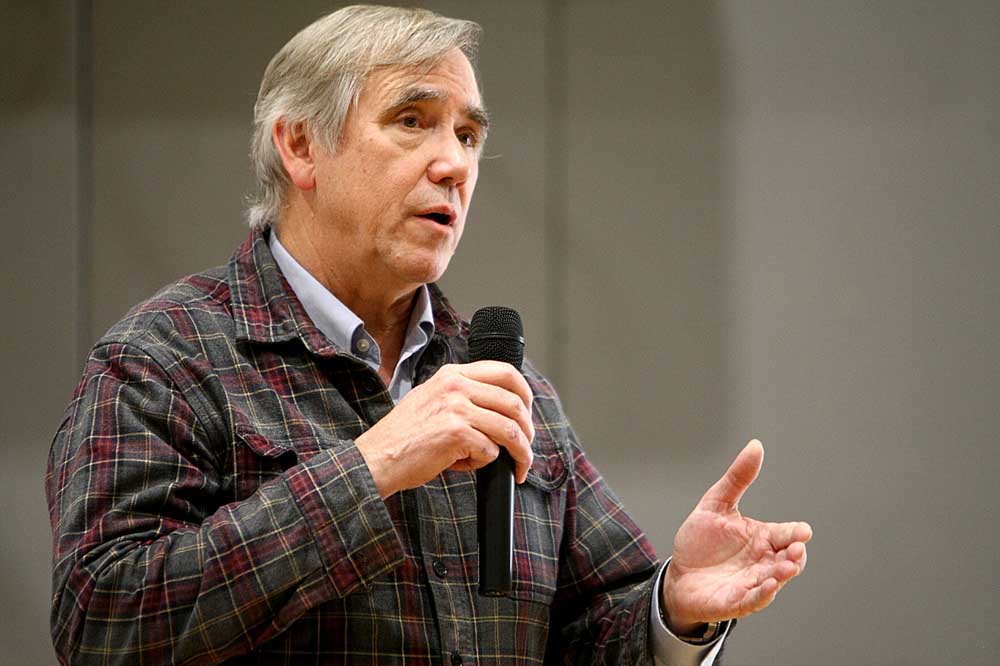Capital Chatter: Debates unlikely to turn the tide
Published 5:00 pm Thursday, September 29, 2022

- capital chatter logo
As the gubernatorial candidates’ debate came to an end Tuesday evening in Bend, Democrat Tina Kotek accurately described the choice for Oregon voters: “Are we going to go to the right, or are we going to continue to make progress and solve our problems together?”
As the “progressive” candidate among the three main contenders, she implied there was only one correct answer.
Trending
That is not necessarily so. Indeed, this is the question that challenges Oregonians ahead of the Nov. 8 general election: Continue the path of outgoing Gov. Kate Brown, a progressive Democrat and one of the nation’s least popular chief executives? Move toward the center, and if so, how far? Swing the political pendulum rightward?
In closing remarks at the fast-paced debate, Democrat-turned-independent candidate Betsy Johnson contended Oregon was hungry for her centrist, nonpartisan approach whereas Kotek would be more Kate Brown-ish than Brown herself.
Republican Christine Drazan lauded Kotek and Johnson as solid partisans and great status quo candidates, ones to support if you like where Oregon currently is headed.
Other than a raft of nifty of soundbites, this second debate revealed little beyond what we already knew. These former legislative colleagues enmeshed in a tight race for governor don’t care for each other.
“I’m still not learning what they would do as governor. What I’m talking about is, ‘You three clearly don’t like each other. And as governor, you’re going to have to work with people you don’t like. How are you going to do that?’” political scientist Dr. James Moore said when I talked with him on Wednesday, the day after the debate.
“Tell me how you’re going to run your Governor’s Office.”
Trending
National prognosticators rate the race as a tossup. I’ve been leery of their broad-stroke descriptions of Oregon politics. But the tight race is confirmed by a new poll by Portland-based DHM Research, a reputable organization. The poll, conducted for The Oregonian, has Drazan leading Kotek 32% to 31%, essentially a statistical tie within the margin of error. Johnson had 18% support among likely voters.
Libertarian candidate R. Leon Noble had 3% support, with 1% support for Constitution Party candidate Donice Noelle Smith.
John Horvick, senior vice president for DHM Research, told me this could be a pivotal election for Oregon. He said it’s not inconceivable that Republicans could win the governor’s office and three of the state’s six congressional seats.
As my colleague Gary Warner has reported, Republicans also are making a bid to slash the Democrats’ supermajorities in the Legislature.
Kotek easily won her Democratic primary last spring. The DHM Research poll indicates Drazan has now done a better job of solidifying the party base instead of losing voters to Johnson. Of the overall voters polled, 19% were Democrats supporting Johnson and 13% were Republicans supporting Johnson.
Although Johnson’s window is narrowing, any of the trio could yet win. That is because only a bare majority of voters in the poll were solidly committed to their candidates.
To break out of the pack, any one candidate must be willing to take chances and do something different, or the other two must stumble badly, according to Moore. He studies elections in conjunction with teaching politics and government at Pacific University.
“They need to switch to, ‘In four years, at the end of my first term, this is what we need to have accomplished and this is why I’m the person to get us there,’” he said.
That might mean taking a page from Oregon’s last Republican governor, Vic Atiyeh, when the economy was in the dumps. Atiyeh convinced voters he had the skills and ideas to guide Oregon rather than turn the state’s troubles over to Democrat Ted Kulongoski. Gov. Atiyeh handily trounced Kulongoski in that 1982 re-election bid.
Kulongoski did become governor 20 years later, when Republican Kevin Mannix ran on the same campaign theme as Drazan today: Democrats have held power too long, leaving the state in sad shape.
One curiosity of this race is geography. Despite their vast political separations, the women live within 50 road miles of each other – Kotek in Portland, Johnson in rural Warren and Drazan outside Canby.
Kotek has done a good job of traveling around Oregon. Is she too closely identified with Portland to draw other voters, and will enough Portland voters turn out for her? Will Republicans turn out for Drazan or view her as Portland-ish? Will Johnson’s Scappoose-area home and Central Oregon roots turn the tide with unaffiliated voters?
One thing does seem certain. Until candidates change their tactics, debates such as Tuesday’s are unlikely to win the election.
“I like debates. I think they’re fun. I think that I learn a lot,” pollster Horvick said. “Is there really evidence that debates that are streamed on the internet move the electorate? I don’t know. I’m doubtful.”





